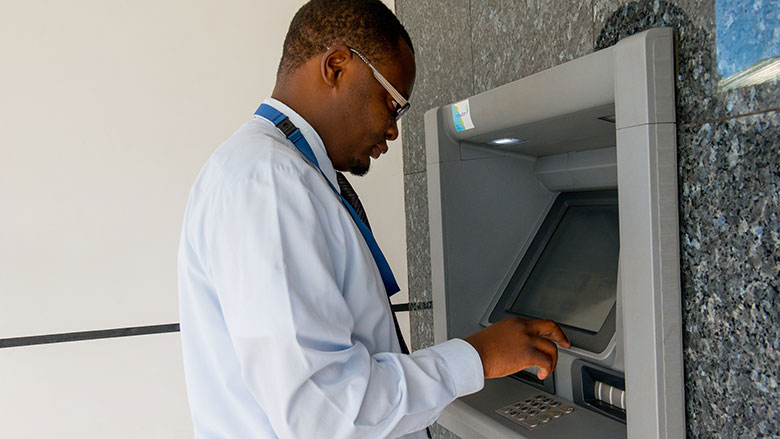Challenge
The Financial Sector Technical Assistance Project (FSTAP) was conceived in 2011 when the financial sector’s contribution towards growth and poverty reduction in Malawi was limited. Much more was needed to expand and improve financial access. At that time, out of the 19 percent of the adult population, only 17 percent were banked. The business environment was equally challenging. While the country had achieved notable reforms in Doing Business, much of the business environment work remained outstanding, particularly financial sector reforms. The 2009 Enterprise Survey pointed out that access to finance was the greatest problem among businesses in Malawi. The formal financial sector remained small, concentrated, and serviced only a narrow clientele, mostly the urban population.
Approach
The implementation of FSTAP focused on increasing access to finance for the unbanked adult population by seeking improvements in the financial sector regulation and supervision; modernizing financial infrastructure and national payments systems; improving financial literacy and ensuring consumer protection; and strengthening financial sector policy environment, governance capacity and long-term finance. The World Bank’s expert knowledge, convening power, and project financial resources were used to guide several institutions to implement the project.
The main thrust of the approach was the provision of high-quality technical assistance and reports on key issues, such as digital transformation initiatives. The project facilitated stakeholder consultations, supported coordination and collaboration, and buy-in by various stakeholders. The supplementary element of the approach was reinforced by the deliberate investments in building ongoing relationships amongst stakeholders that have now continued to survive beyond the project life.
Results
Overall, Malawi has experienced digital transformation and increased access to finance. The percentage of adults using financial institutions, for example, rose from 19 percent at the start of the project in 2011 to 40 percent at the closing in June 2018. Beneficiary institutions of digital innovations have continued to share the new central payments platform beyond the project closure. FSTAP laid the foundations for digital financial services in Malawi. The project also supported improvements in financial literacy and for the regulatory framework in the financial sector.
Digital Technology Transformation: Through FSTAP, the following achievements were registered:
- 2015: The national payments system was modernized and all commercial banks were connected to a single switch. Point-of-sale terminals, automated teller machines, and mobile payments services are now interoperable.
- 2017: The Microfinance Institution (MFI) Hub was developed, enabling microfinance institutions and the savings and credit cooperatives to play a meaningful role to serve clients.
- The project enabled the integration of the Hub and the mobile money services into the national switch, hence increasing the use of mobile technology to improve access to finance. The cases integrated include person-to-person, bill pay, cash-pull from bank accounts, and cash-push to bank accounts. The integration significantly expands the client base and hence ensures sustainability of the platforms.
- 2019: The introduction of the Automated Trading System, which is linked to the Central Securities Depository on a single digital platform, enables the leveraging of technology to improve transaction processing efficiency.
Gender benefits: The proportion of women within the adult population that is formally banked increased from 17 percent in 2011 to 38.5 percent in 2018.
Capacity Building: Capacity building on digital transformation was achieved at the Reserve Bank of Malawi (RBM), Ministry of Finance, microfinance institutions, and savings and credit cooperatives.
South-South cooperation and knowledge exchange: As countries re-examine usage of financial technology, RBM has started receiving inqueries from countries in the Global South, including Zambia, Somalia, and Kenya.
World Bank Group Contribution
The International Development Association (IDA) financed the total project cost of $28.2 million. The financing was used to kick-start the digital transformation of the financial sector and to strategically reposition financial intermediaries. It targeted individuals and micro-enterprises in underserved market segments, using innovative business models and leveraging emerging technology.
Partners
NA
Moving Forward
FSTAP laid the foundations for digital financial services in Malawi. It marked a turning point of how policymakers, regulators and market actors use technology, processes and people to evolve market conduct, outreach, and performance. The Financial Inclusion and Entrepreneurship Scaling Project approved in August 2020, in the amount of $86 million, builds on this legacy. The project seeks to further improve access to financial services for micro, small and medium enterprises.
Beneficiaries
Capacity building on digital transformation was achieved at the RBM, Ministry of Finance, microfinance institutions, and savings and credit cooperatives. Microfinance institutions and savings and credit cooperatives benefited from improvements to their core systems, and RBM from the technological advancement and better supervision. The rest of the citizens benefited from readily available, convenient and low-cost digital financial services.
